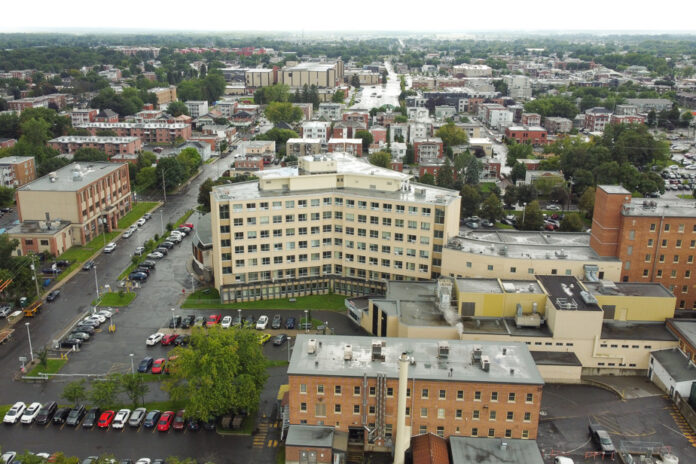“It’s a city that is very well located, in the center between Montreal and Quebec,” says Danielle Pilette, associate professor at UQAM and expert in municipal management. Export to the United States is also possible [with the A55]. Above all, it benefits from the demographic growth observed outside the Montreal metropolitan area. There is a market for low density. In Drummondville, for historical reasons, the built environment is relatively modest and the price of housing, even today, is affordable. It plays a big role in the growth of housing. The median price there is $325,000, compared to $400,000 in Saint-Hyacinthe, $430,000 in Saint-Amable and $510,000 in Beloeil, according to Centris data.
When the textile factories were closing, the Lemaire family, originally from Drummondville, was reopening paper and cardboard factories. Cascades was founded in 1964 in Kingsey Falls, less than 50 kilometers from Drummondville. Like Joseph-Armand Bombardier or Hervé Pomerleau who gave the whole Beauce a taste for entrepreneurship, the Lemaire brothers showed the way forward for the Gilles Soucys (Soucy Group in 1967) and Roger Dubois (Canimex in 1969). Fifty-five years later, Soucy has more than 1000 employees and Canimex more than 800. For its part, Cascades still operates facilities in the city founded in 1815 in honor of Governor Gordon Drummond.
Its past as a working-class town has fueled its rebirth, believes Frédéric Laurin, professor of economics at the University of Quebec at Trois-Rivières. One in five jobs in Drummondville is currently manufacturing. One of the highest ratios in Quebec. The secondary sector of the economy was able to build on the vestiges left by textiles, “workers accustomed to factory work with relatively low wages”, underlines Mr. Laurin, who teaches in the MBA program both in Trois-Rivières than at the Drummondville campus. In 2022, the median salary in Centre-du-Québec is almost $3 lower than the provincial median.
“Drummondville’s reputation as a business-friendly environment is no accident,” writes Professor Mario Polèse in a book on the wealth of cities published in English in 2020 by Oxford University Press. Behind every successful man (if you can forgive me the analogy), there is a woman, in this case Francine Ruest-Jutras, mayor during the crucial years when Drummondville transformed from a mono-industrial city to a diversified manufacturing center. Under his administration, the city has earned a reputation as a scandal-free, efficiently run municipality with some of the lowest property taxes in the province. The book, which lists the strengths and weaknesses of some twenty metropolises such as New York, Mexico City, Toronto, Paris and Vienna, devotes six pages to the Drummondvillois miracle. His successors at City Hall have taken care of this legacy. The average tax burden and total indebtedness remain below the provincial average to this day.
Proactive, the Drummondville Economic Development Corporation (SDED) has distinguished itself throughout its history, particularly under the leadership of Martin Dupont, boss from 1996 to 2021. As a mark of recognition, the Quebec government has mandated the SDED to recruit abroad in the same way as Montreal International and Quebec International. Recently, the SDED, which has an annual budget of 12 million and a staff of 60 people, seeks less to canvass companies than to recruit talent. Successfully, 201 international workers settled in the MRC of Drummond in 2022, coming from Tunisia, France, Morocco, Cameroon, Colombia and Mexico. Eight recruitment missions are on the program by June 2024, in West Africa and Brazil, for example. Twenty employees are dedicated exclusively to human resources by offering SMEs a turnkey service for attracting and recruiting workers, explains Julie Biron, its director of attracting and developing the workforce.















